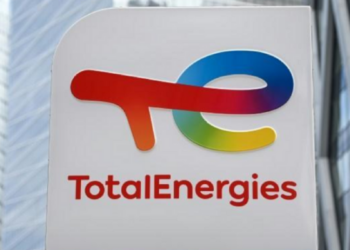- Total Energies has shown consistent revenue growth over the past five years, with a record-breaking 41% year-on-year growth in 2022 and a notable increase of 38.6% in Q1 of the following year.
- Petroleum products account for over 75% of the company’s total revenue, but Total Energies has successfully diversified its operations into areas such as lubricants and solar energy to mitigate potential shocks and reduce reliance on a single product.
- Despite the revenue growth, the company has experienced increased costs, which have impacted its profitability.
Total Energies has demonstrated resilience in growing its revenue over the past five years, despite facing various challenges
In the 2022 financial year, the company achieved record revenue of N482.47 billion, with a remarkable 41% year-on-year growth compared to 2021. The company continued its impressive revenue growth trend in Q1, achieving a notable year-on-year revenue increase of 38.6% to N135.28 billion.
This growth was primarily driven by revenue from petroleum products, which accounted for over 75% of the company’s total revenue.
It is positive to note that the company recognized the importance of revenue diversification and has expanded its operations beyond petroleum products into other areas such as lubricants and solar energy.
The contribution from lubricants and other sources has shown consistent growth over time, with an increase from 15.96% in 2018 to approximately 25% in 2022. Revenue diversification is an important strategy to mitigate potential shocks and reduce reliance on a single product or sector and its vulnerability to fluctuations in the petroleum product market.
Despite the revenue growth, the company has also experienced increases in its cost of sales and other operating costs. The high cost of sales, which accounts for well above 86% of total revenue on average, puts pressure on the company’s gross profit margin and overall profitability. This has led to declines in profit before tax and cash flow from operating activities.
Despite the decline in earnings, the company’s commitment to distributing dividends may have been perceived positively by investors, leading to increased confidence in the stock.
The declaration and payment of a final dividend of N21 per share by the company for the 2022 financial year, along with the dividend yield of 6.89%, likely had an impact on investor sentiment.
The share price has gained 58.6% year-to-date (YtD) and accrued 41% over the past four-week period. Such significant gains indicate that investors have become more optimistic about the company’s prospects and are willing to pay a higher price for its shares.
This may be attributed to a combination of factors, including the dividend payment, overall market conditions, company performance, and investor expectations of future growth. However, it is important to note that share prices can be influenced by a variety of factors and can experience volatility over time.
Investors should conduct thorough research and consider their individual investment goals and risk tolerance before making investment decisions.
It appears that the company’s earnings multiples, such as the price-to-earnings (P/E) ratio and price-to-sales (P/S) ratio, suggest that the stock may be of good value and potentially undervalued relative to its peers.
Total Energies’ share price currently trading at a trailing twelve months price-to-earnings ratio of 6x, below the peer average P/E ratio of 8x, indicates that the stock is cheaper for an investor relative to its earnings potential, invariably, pinpointing that the firm’s stock is undervalued.
Also, a price-to-sales (P/S) ratio of 0.20x suggests that the market is valuing Total Energies at approximately 0.2 times its revenue per share. This implies that the market is assigning a relatively low valuation to the company compared to its revenue generation
These can create an opportunity for investors as they may be able to purchase the stock at a relatively lower price relative to its earnings potential. If the market recognizes the company’s earnings potential and the stock’s valuation aligns more closely with its peers, it could lead to an increase in the stock’s price, potentially resulting in a positive share price return.
Looking ahead, Total Energies has provided guidance for its Q2 2023 earnings, forecasting a 24% decline in revenue compared to the previous year. However, the company expects a 41% reduction in the cost of sales, resulting in a 12.6% increase in profit before tax for the same period.
The revenue decline may have a negative impact on investor sentiment and could potentially lead to a short-term decrease in the share price. However, the projected cost reductions indicate improved efficiency and potentially positive effects on profitability. The expected increase in profit before tax could help mitigate the negative impact of the revenue decline and attract investor attention.
Ultimately, the impact on Total Energies’ share price will depend on how investors interpret and weigh the revenue decline, cost reductions, and profit growth, as well as broader market conditions and investor sentiment. It is important to note that these are forecasts, and actual results may vary
.






















